From Traditional Fishing to Fish Farming: How Aysel Kaya Transformed Her Family’s Future with EU Support
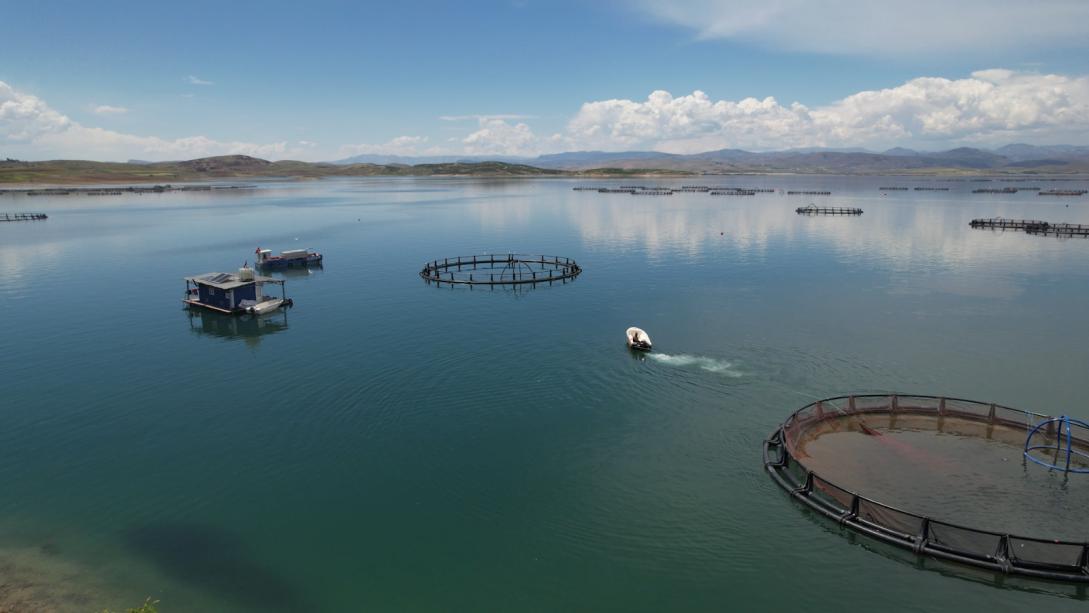
As her son grew older, Mrs Kaya needed a more secure job and steady income. Eventually, she and her husband, Soner Kaya, decided to breed fish. Mrs Kaya saw an advert on social media while looking for funding. She explains: “We went to Agriculture and Rural Development Support Institution (ARDSI) [provide full name and put ARDSI in brackets] and received support from the European Union. We then set up our own farm.”
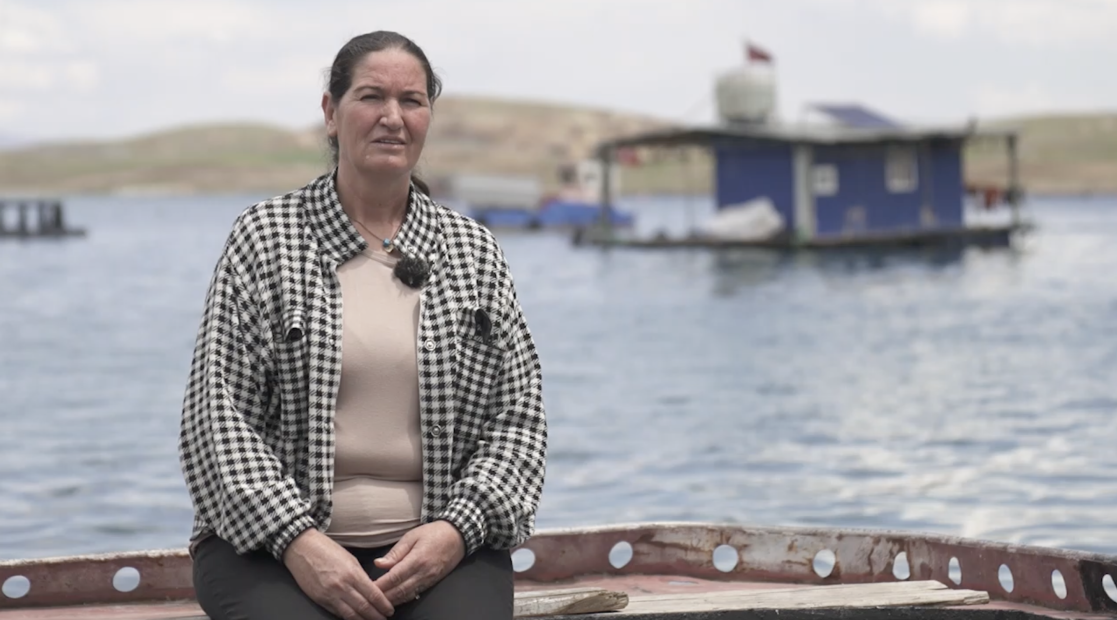
EUROPEAN UNION, 2024
Aysel Kaya, the Fisher-Mother of Keban Dam
Support from the European Union (EU) has been the lifeblood of the trout farm. “When we received EU support, we became more relaxed. We could run our business without being dependent on others,” says Mr Kaya.
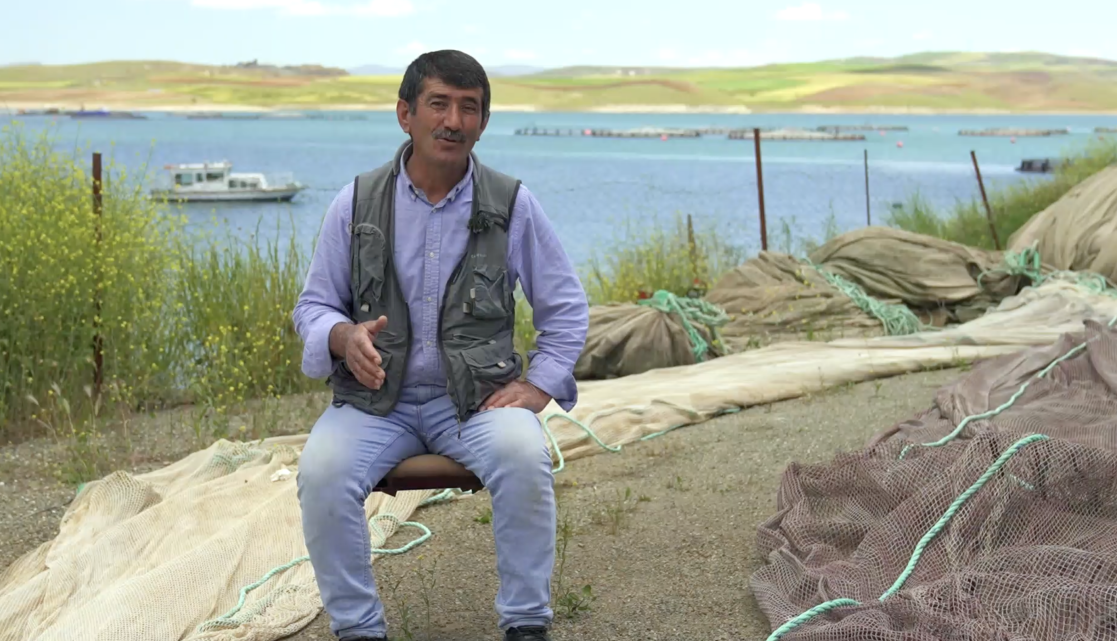
EUROPEAN UNION, 2024
Soner Kaya
Providing for five households
Today, they produce and sell their own fish. Aysel Kaya’s trout farm, with a capacity of 200 tonnes per year, symbolises her entrepreneurial spirit. With its nine cages, it now supports five local households.
“I have been working here for about four years. I had never had a female boss before. I am delighted to be working for her. Mrs Kaya is very meticulous,” says Mustafa Yılmaz, an employee at the fish farm.
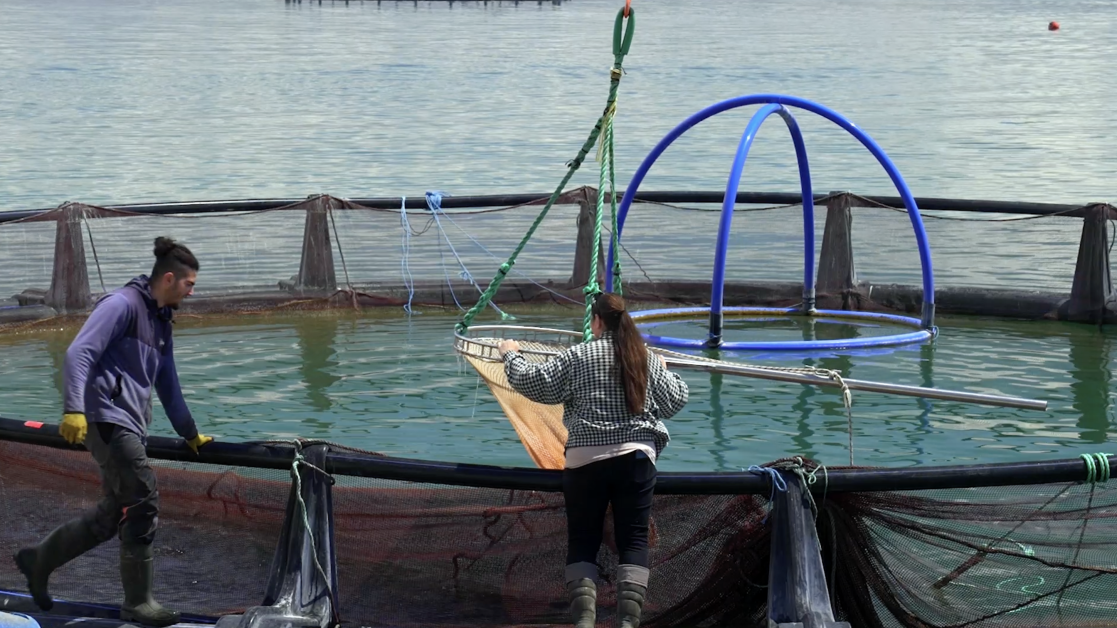
EUROPEAN UNION, 2024
The trout farm uses nine cages
Setting an example for businesses in Keban Dam
Emre Karakuş, the owner of the adjacent farm, says: “First of all, I would like to congratulate Mrs Kaya. She has proved that women can work successfully in this male-dominated sector. After she started this business, other companies also started to employ female staff.”
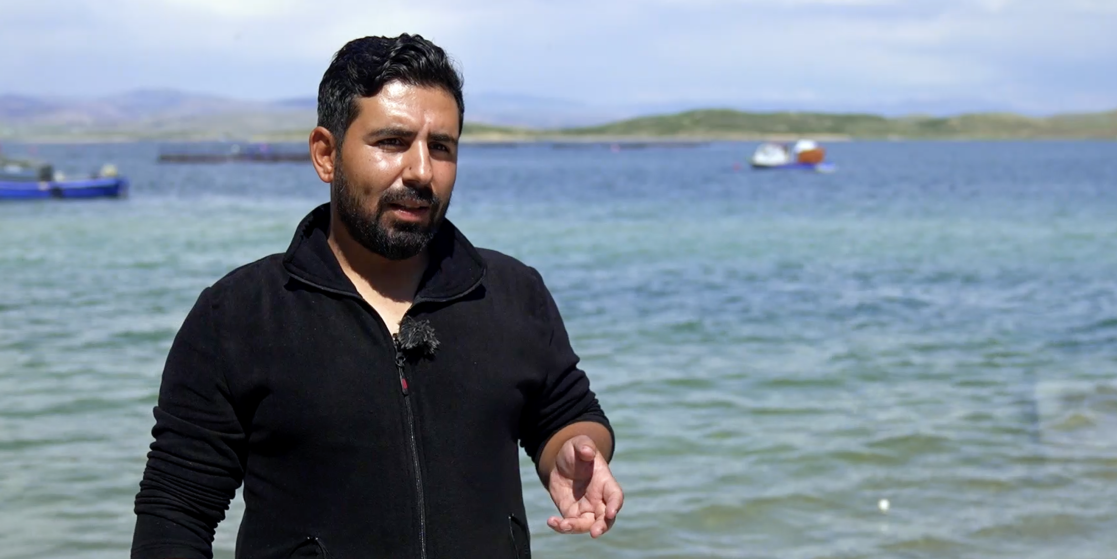
EUROPEAN UNION, 2024
Emre Karakuş, the owner of the adjacent farm
Mr. and Mrs. Kaya’s son, Mahir Kaya, is studying aquaculture at a vocational school in Elazığ. He aspires to become an aquaculture engineer by furthering his studies in this field at university and eventually taking over the business that his mother started. Currently interning at the fish farm, he states: “I am incredibly proud of my mother.”
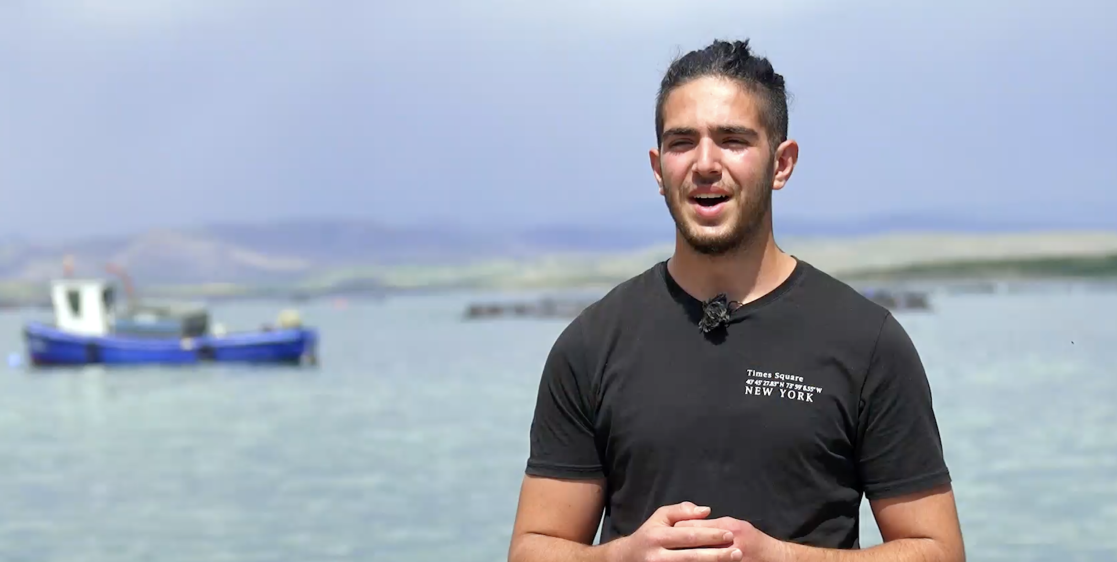
EUROPEAN UNION, 2024
Mr. and Mrs. Kaya’s son, Mahir Kaya
The Kaya family now feels secure and content. Mrs Kaya says: “We are very happy, our future is guaranteed. I believed in myself; I set a good example for the Keban Dam fish farms.”
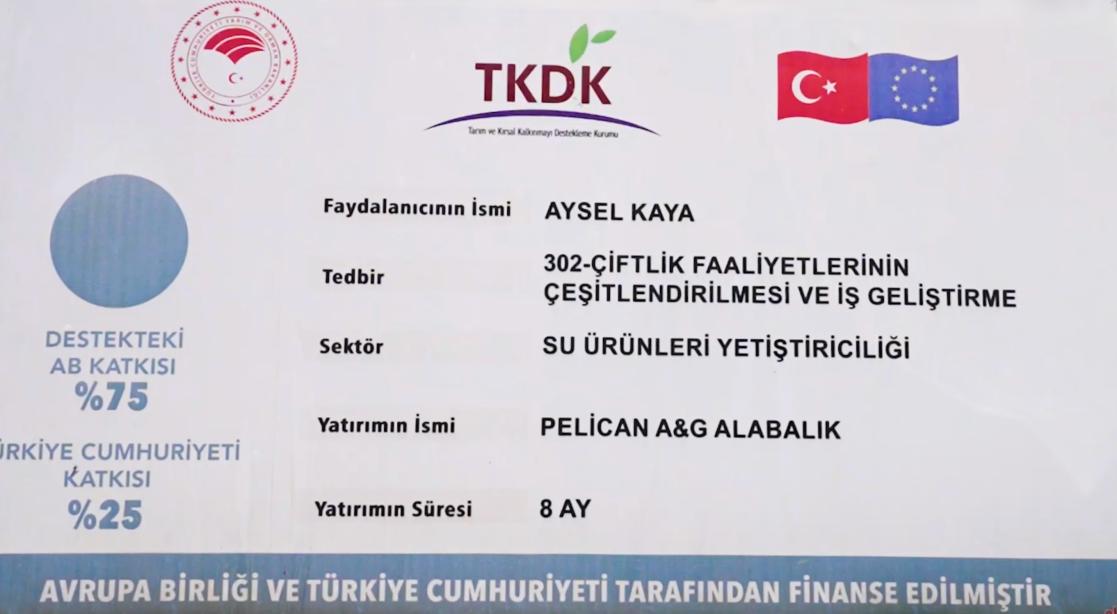
EUROPEAN UNION, 2024
The trout farm received 75% grant support from the EU’s rural development (IPARD) programme, which is implemented by the Agriculture and Rural Development Support Institution (IPARD Agency).
IPARD covers the whole of Türkiye
The Charge d’Affaires ad interim of the Delegation of the European Union to Türkiye, Mr Jurgis Vilčinskas, states: “We are very pleased that in March, the IPARD III programme’s geographical coverage was broadened from 42 to 81 provinces, now including all of Türkiye. This expansion will substantially enhance the access of potential beneficiaries to funding opportunities. IPARD is pivotal in advancing and modernising agriculture and tourism, fostering job creation, and enhancing living standards in rural communities.”
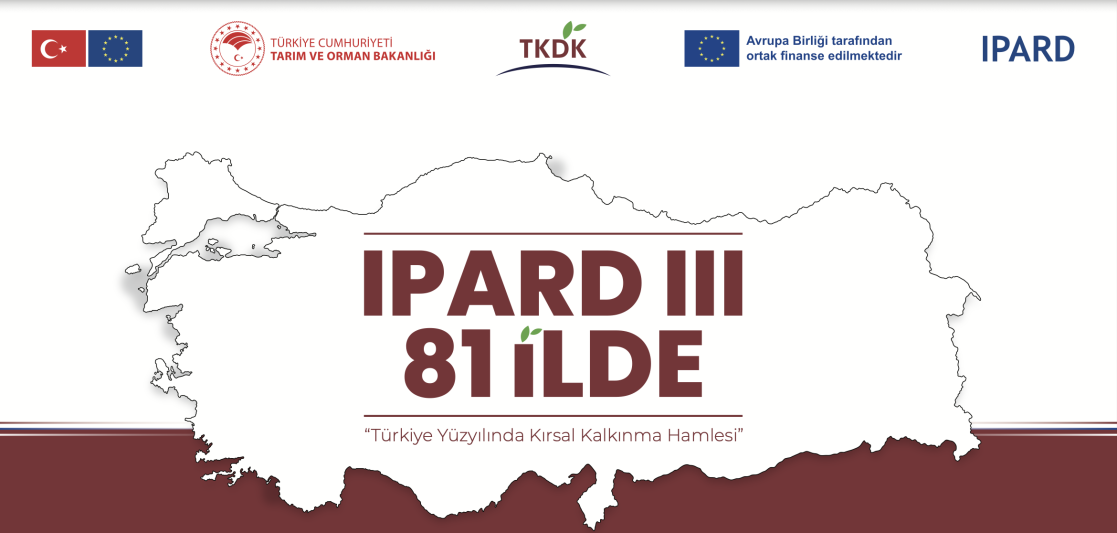
EUROPEAN UNION, 2024
What is IPARD?
IPARD is a unique EU financial assistance programme for rural development, part of the Instrument for Pre-Accession Assistance (IPA). It represents a flagship area of cooperation between the EU and Türkiye, financially assisting farmers, rural communities and the agri-food sector in enhancing competitiveness, promoting sustainability and improving rural areas living conditions. IPARD also provides support for new investments and technology plus ensures that European standards are implemented in Turkish agriculture, food processing, and rural businesses.





